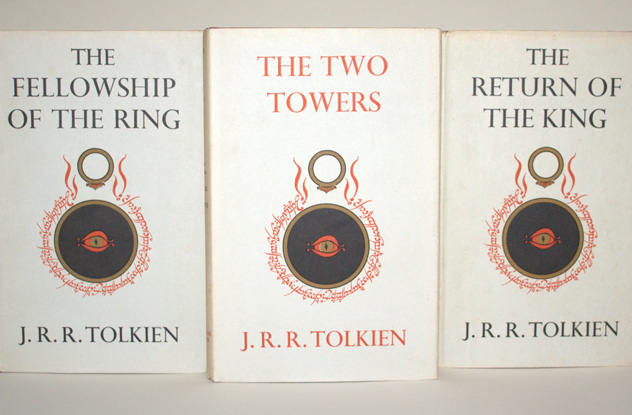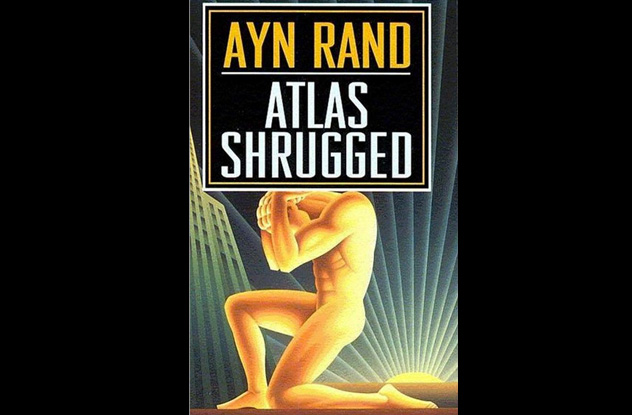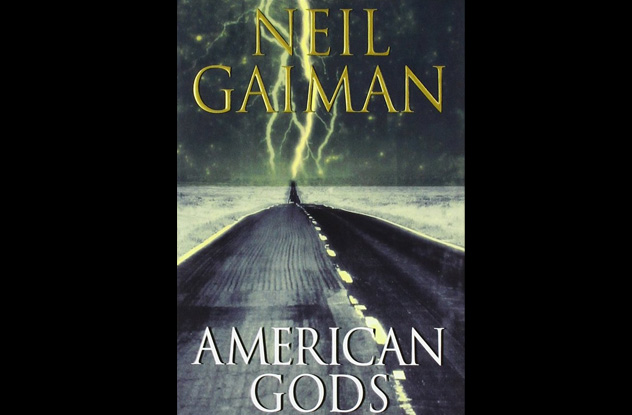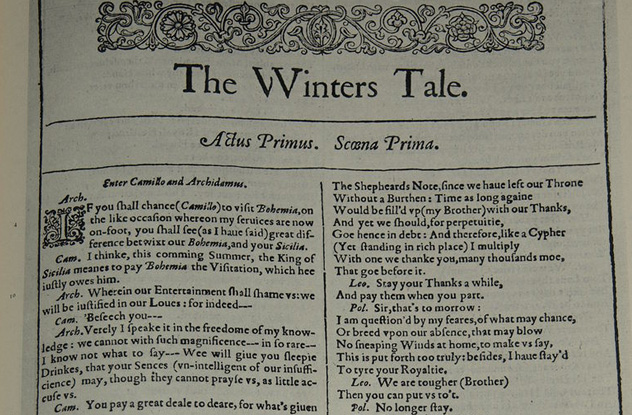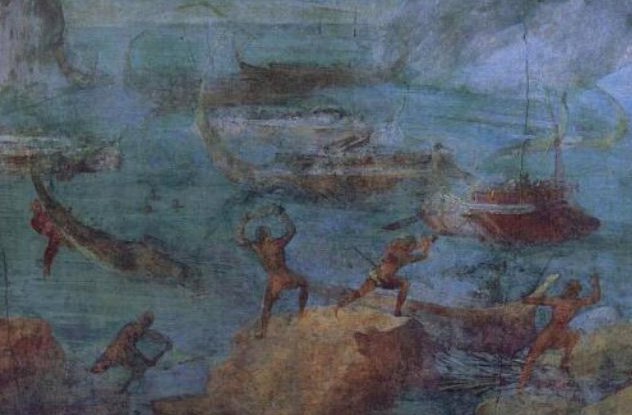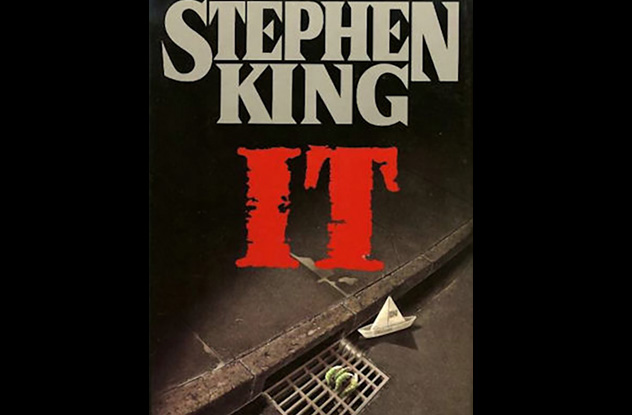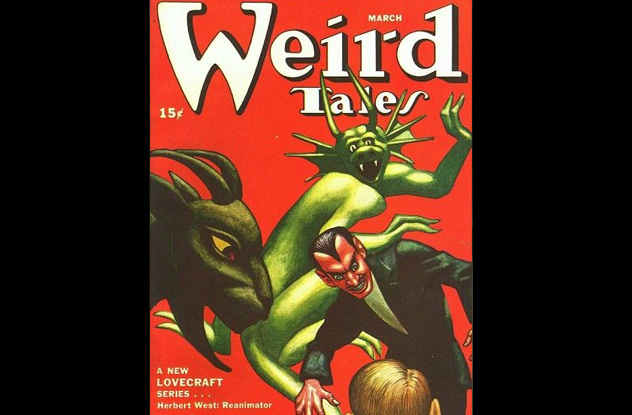10Bleak HouseAn Important Character Spontaneously Combusts
It may not be as famous as A Christmas Carol or Oliver Twist, but Bleak House is the granddaddy of Charles Dickens’s fiction. Writers, experts, and popular magazines all rank it as his greatest work, bar none, citing the larger-than-life characters and complex plot. But there’s one moment you’ll never find quoted in the reams of adoring essays: the scene where an important character spontaneously combusts out of narrative convenience. Early on in Bleak House, we’re introduced to Krook, an illiterate rag-and-bone man who somehow has some vital papers relating to the main plot. At one point, it appears as if he’s about to figure out what he has and bring the novel crashing to an end 500 pages early. No sooner has this information settled in than Dickens kills Krook off by having him burst into flames. The plot then continues as if nothing happened, expect for one bizarre chapter where a bunch of scientists demonstrate at length that spontaneous combustion is a real phenomenon and not just a lazy plot device. Even in the days of coincidence-fueled Victorian novels, the public didn’t take kindly to this twist. Dickens was forced to vigorously defend himself in the press against charges that he was fueling a “vulgar superstition.”
9Lord Of The RingsThe Hobbits Get Naked With A Stranger
With the extended editions taking especially long to watch, you’d be forgiven for thinking the Lord of the Rings film trilogy left out nothing from the books. You’d be wrong. Book fans noticed that the character of Tom Bombadil was conspicuously absent. A strange old man who may or may not be some kind of mystical creature, Bombadil has really only one function in the books: to get the hobbits naked while acting as weird as humanly possible. After the Fellowship gets caught in the trunk of Old Man Willow, Tom appears out of nowhere to sing at the tree until it agrees to let them go. He then takes them back to his home in the woods, where he insists they strip naked and do some vigorous exercise. All the while, he keeps singing a bunch of deeply bizarre, very irritating songs full of made-up words and sentences that don’t make any sense. Plenty of fan theories have cropped up about the real nature of Bombadil. They range from him being an evil demon worse than Sauron to him being the living incarnation of music. He may, however, just have been an embarrassing mistake on Tolkien’s part.
8Atlas ShruggedRailroads Require Bloodshed
For many libertarians, Ayn Rand’s Objectivist bible is the classic to end all classics. Detailing the story of a greedy government trying to nationalize a private railroad, it contains Rand’s defining statement on Objectivism, not to mention some rather frank sex scenes. It also features some digressions, such as the violent biography of the heroine’s ancestor, railroad builder Nat Taggart. Already dead by the time the novel starts, Taggart is introduced via a statue and the claim that “no penny of his wealth had been obtained by force or fraud.” The story then immediately flashes back to a point when Taggart saved some money by shooting dead a corrupt legislator. Although he’s acquitted at trial, we’re also told Taggart “had no trouble with legislators from then on,” suggesting the entire Midwest was in terror of him. A paragraph later, a “distinguished gentleman” tries to offer Taggart a government loan, only for Nat to respond by throwing him down three flights of stairs. Immediately afterward, he takes out a separate loan and puts his own wife up for collateral.
7Arabian NightsA Whole Tale Devoted To Farting
Compiled in the Islamic Golden Age, the Arabian Nights (also known as the 1,001 Nights) are best known today as the source for Aladdin and Sinbad the Sailor. Featuring evil genies, flying horses, talking apes, and swashbuckling adventure, they’re as strange, magical, and disturbing as the best of the Grimm’s fairy tales—except for one story that’s about nothing but farting. Known in English as How Abu Hasan Brake Wind, the tale does exactly what it says on the tin. Sandwiched between two stories about genies and angels, it features a man who eats too much at a feast, stands up, and lets fly a titanic fart. That’s pretty much it, except for a further gag about how he flees home in embarrassment and comes back 10 years later to discover that particular day has been immortalized as “the day Abu Hasan broke wind.” The moral of the story is that a single act may come to define your entire life. Some think the collection’s most famous translator, Captain Richard F. Burton, wrote it himself and stuck it in for a laugh. The story of Abu Hasan is missing from almost all modern versions.
6American GodsA Man Is Devoured By A Giant Vagina
First published in 2001, Neil Gaiman’s American Gods has gone on to become a cult classic, winning many awards and getting its own TV adaptation. Focused around a group of ancient and not-so ancient gods living in modern America, the books is filled with weird incidents and horrifying encounters. One is particularly weird and horrifying: the scene where a man gets eaten alive by a prostitute’s vagina. Within the novel, the ancient god Bilquis (the Queen of Sheba, considered a half-jinn outside the book) is inhabiting a prostitute’s body. She winds up having sex with a random man. Gaiman approaches the scene from the caller’s point of view, so we get an intense, lyrical description of his orgasm. Then, we slowly pull out to reveal our guy is now hanging chest-deep from Bilquis’s nether regions. The text goes on to make it quite clear that he gets “consumed,” although we’re spared the intense description this time around.
5The Winter’s TaleA Killer Bear Appears from Nowhere
The Winter’s Tale is one of Shakespeare’s strangest plays. It starts off as a tragedy and turns into a comedy. At one point, the action jumps 16 years, with many plot threads left dangling. Statues come to life, and satyrs do dance routines. Even amid all this Elizabethan madness, one moment still stands out. After abandoning a baby in a bleak forest and giving a soliloquy, the character Antigonus is unexpectedly attacked by a bear. It’s one of the most infamous moments in the history of theatre. In the middle of a serious scene, we get a character randomly eaten by a bear that’s never mentioned again in the entire play. In addition, Shakespeare’s instructions for how to play the scene amount to nothing more than “Exit, pursued by a bear.” Ever since, directors and actors have struggled with how to portray this. Is it a funny moment, like this bit in Family Guy? Is it scary? Can you just leave it out altogether? The moment is so confusing that people have written entire academic essays arguing about how easy it would’ve been to train a live bear in Elizabethan England. In the years since The Winter’s Tale was first performed, it’s been argued that the bear symbolizes the exact moment the play shifts from tragedy to comedy. We can’t help but feel there must’ve been an easier way to do it.
4The OdysseyA Fat Woman Eats Odysseus’s Crew
The sequel to the Iliad, the Odyssey is one of the earliest works of Western literature. Arguably, it’s also the greatest. Spanning great battles, mythological adventures, and domestic drama, Homer’s epic poem contains everything you could possibly need in a book. It also contains some stuff the world probably could’ve done without, such as the scene where a sailor suddenly gets eaten alive by a fat woman. While sailing home from the battle of Troy, Odysseus and his crew get lost and have enough adventures to fill a lifetime’s worth of fantasy tales. After several scrapes with death, they wind up at the city of Telepylus, home of the Laestrygonians. A scouting party, sent to find out what the inhabitants are like, gets directed to a house. Inside, they meet a woman “massive as a mountaintop” who immediately sets about devouring them. The rest of the people in the town also rise up and come hunting for some fresh Athenian meat. The townsfolk are ultimately revealed to be giants rather than humans.
3ItGroup Sex Between All The Book’s Children
One of the longest novels Stephen King ever produced (and that’s saying something), It tells the story of seven small-town kids who get caught up in unimaginable evil. Faced with a clown-shaped demon threatening to tear their town to shreds, the children venture deep into the sewers to kill the monster. It’s a classic King setup: a coming-of-age tale set in the ’50s, dealing frankly with childhood fears. Then comes the sex scene, described as a magic ritual that helps the preteens find their way again. King has allegedly described it as an attempt to bridge the gap between childhood and adulthood in the story. The text is explicit and includes an in-depth description of one character’s enormous erection. To this day, it’s one of the most controversial scenes the horror supremo has written.
2H.P. Lovecraft Halts The Story For Racism’s Sake
The granddaddy of modern supernatural horror, H.P. Lovecraft was a pulp writer unlike any other. He was also a galloping racist, who believed in white supremacism and enjoyed reading Mein Kampf. Since he was born in 1890, these attitudes weren’t exactly uncommon among writers. Unlike other authors, though, Lovecraft planted his views directly in his stories, often so forcefully that they pull you right out the plot. In “Herbert West—Reanimator,” the protagonist finds himself face-to-face with a black man’s corpse. Rather than just say the man is dead and be done with it, Lovecraft intones: “He was a loathsome, gorilla-like thing, with abnormally long arms which I could not help calling fore legs, and a face that conjured up thoughts of unspeakable Congo secrets and tom-tom poundings under an eerie moon.” His poetry was even worse. Flick through his collected works today, and you might just stumble across “On the Creation of N—rs.” The poem flat-out claims black people are the missing link between humans and animals. Or you might encounter “The Street,” where a sentient street built by noble Englishmen literally self-destructs when some immigrants try to move in. Awesome as the guy’s imagination was, there are only so many times you can come across a character called “N—er Man” without it totally breaking the story’s spell.
1The OdysseyOdysseus’s Rampage Of Revenge
And the end of the Odyssey, Odysseus gets home and kills the Suitors who competed over his wife. This isn’t a boring, old-world swordfight. It’s the most brutal killing spree ever put to page. Book XXII opens with Antinous catching an arrow through his throat, causing “a thick jet of blood to gush from his nostrils.” Another suitor gets his liver pierced, and the poem takes great delight in telling us how his forehead beats against the ground in agony. Yet another gets a spear straight through his groin, while crowds are dispatched in one go by mass decapitations. Odysseus is only warming up. After he catches Melanthius, we hear how he “cut off his nose and ears with the cruel bronze, ripped away his genitals as raw meat for the dogs, and lopped off his hands and feet.” At this point, we should mention that Melanthius wasn’t even trying to sleep with Odysseus’s wife; he was just a goatherd who taunted him a few chapters earlier. Likewise, the maids who served the Suitors get rounded up and hanged in a mass execution, after being forced to clean up the aftermath of Odysseus’s bloodbath. Throughout this killing spree, we’re still meant to be on Odysseus’s side.

